4 Foods That Are Proven Coronavirus Carriers
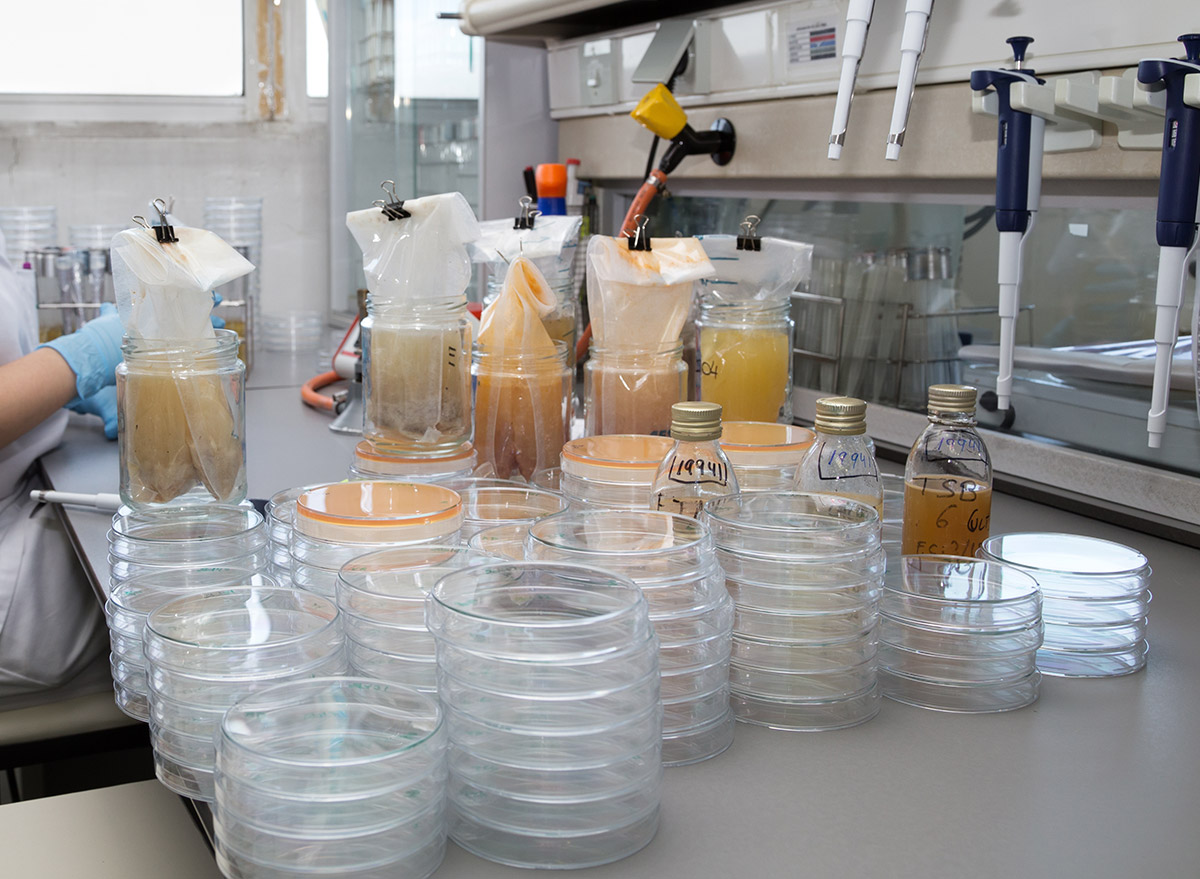
One of this year’s most debated food safety issues brings into question whether coronavirus can be transmitted by food or its packaging.
The Centers for Disease Control and Prevention (CDC) and The World Health Organization (WHO) have both been firm in their stance that the chances of this type of contamination are virtually nonexistent. However, cases of mysterious contaminations at food plants and food importing facilities in countries like New Zealand, Vietnam, and China prompted some governments and the scientific community to investigate the issue further. (To learn about this year’s greatest food recalls, check out 8 Major Food Recalls You Need to Know About Right Now.)
China, for example, has claimed that traces of the living virus have been found on several samples of imported meat and seafood from Latin America and Europe. Their government has resorted to vigorous testing of all imported foods, which has led to reports that the virus can, in fact, survive on raw food and its packaging for several days and even weeks.
What all known food contamination cases have in common is that the food was either chilled or frozen, so the common denominator seems to be the low temperature which could help the virus survive and remain viable during food imports.
Read on to find out more about the cases of coronavirus food contamination, and don’t forget to sign up for our newsletter to get the latest food safety news delivered straight to your inbox.
Salmon
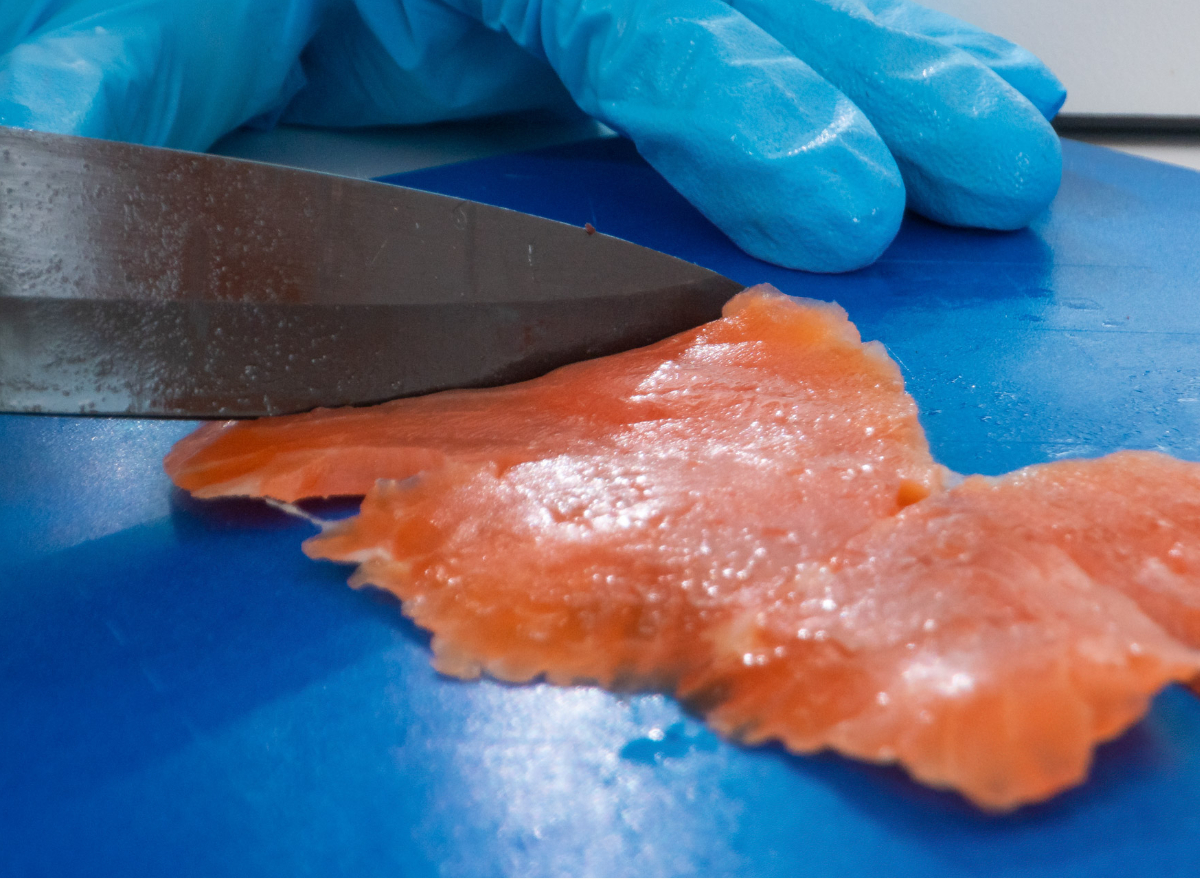
In June, Chinese authorities traced a cluster of coronavirus cases to a restaurant in Beijing. First reports stated the virus had allegedly spread from a cutting board used for preparing raw salmon. Panic ensued and salmon imported from Norway was initially blamed as the culprit. Although the local authorities later absolved these particular fish imports, China announced it would be testing all imported food for the virus.
Just last month, a new study out of South China Agricultural University and Guangdong Academy of Agricultural Sciences in Guangzhou announced that viable traces of the virus had been discovered on frozen salmon samples. Researchers claim that the virus had survived up to eight days at 39 degrees Fahrenheit. For more on this story, check out why This Popular Food Can Carry Coronavirus for Up to a Week.
Chicken wings
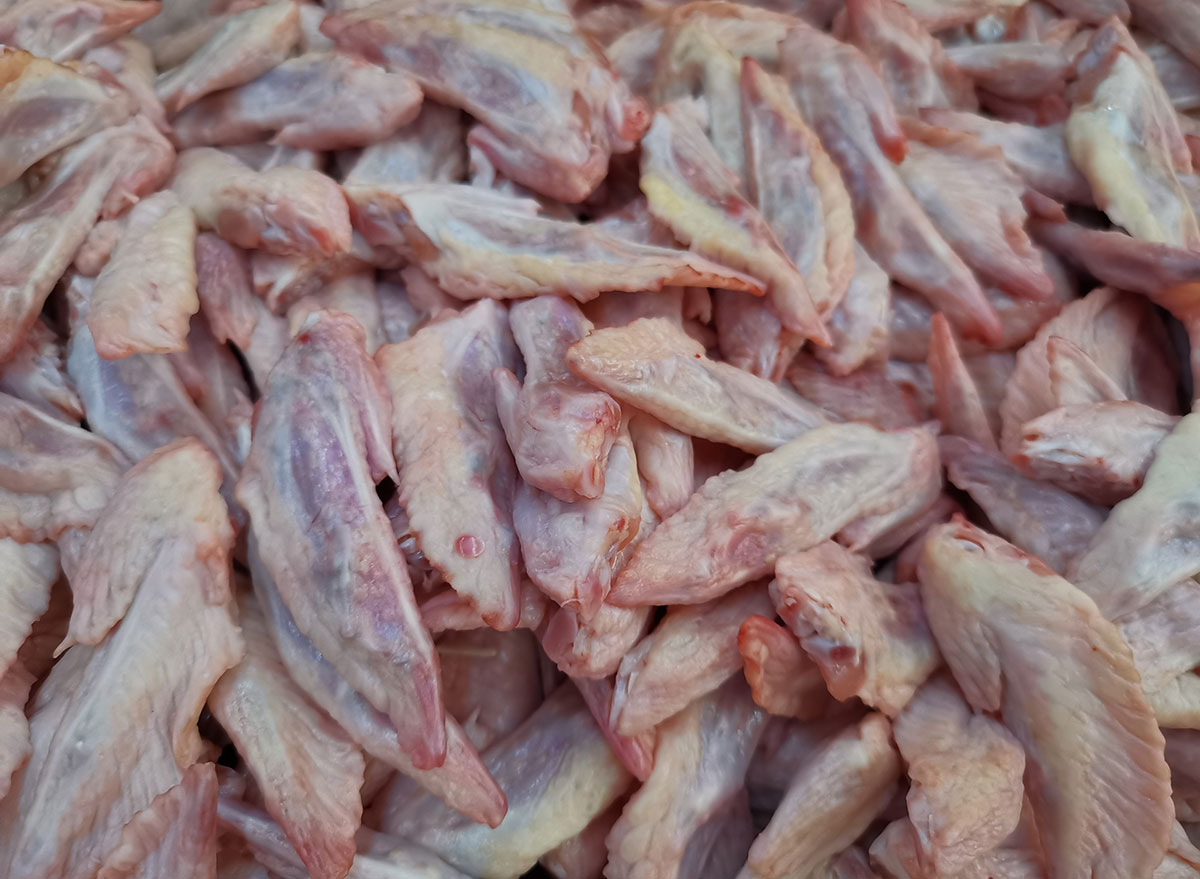
In August, Chinese authorities reported finding traces of the virus on frozen chicken wings from Brazil. The meat was tested during a border screening in the city of Shenzhen. Luckily, no cases of human infection were linked to the product, and a medical expert from the Chinese University of Hong Kong speculates the virus particles likely came from the meat’s packaging.
Shrimp
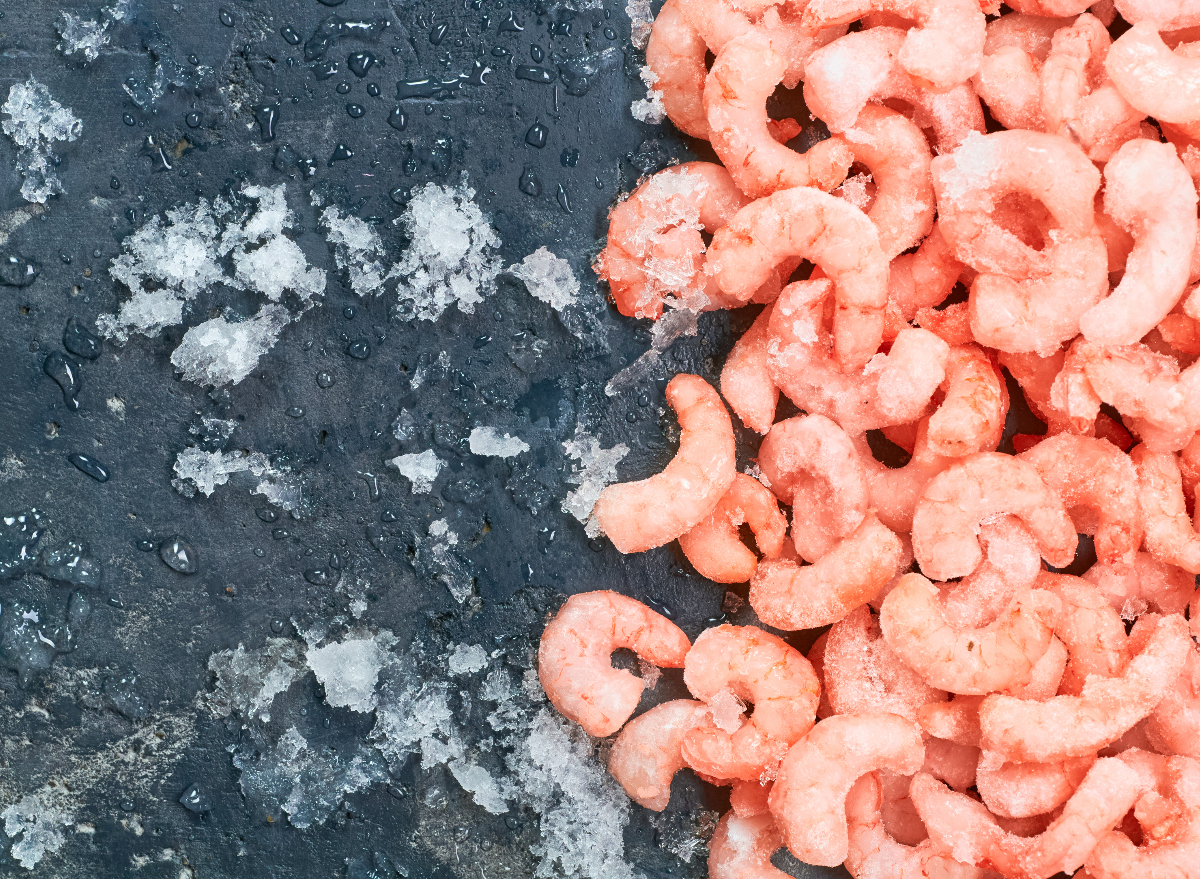
Another Latin American country linked to contaminated food was Ecuador. Frozen shrimp imported from the country was found to have traces of the virus on its outer packaging in China’s Anhui province. This and several other cases in port cities of Xiamen and Dalian prompted the Chinese government to stop all shrimp imports from Ecuador. After agreeing to stricter safety protocols, Ecuador resumed their shrimp trade with China.
Pork
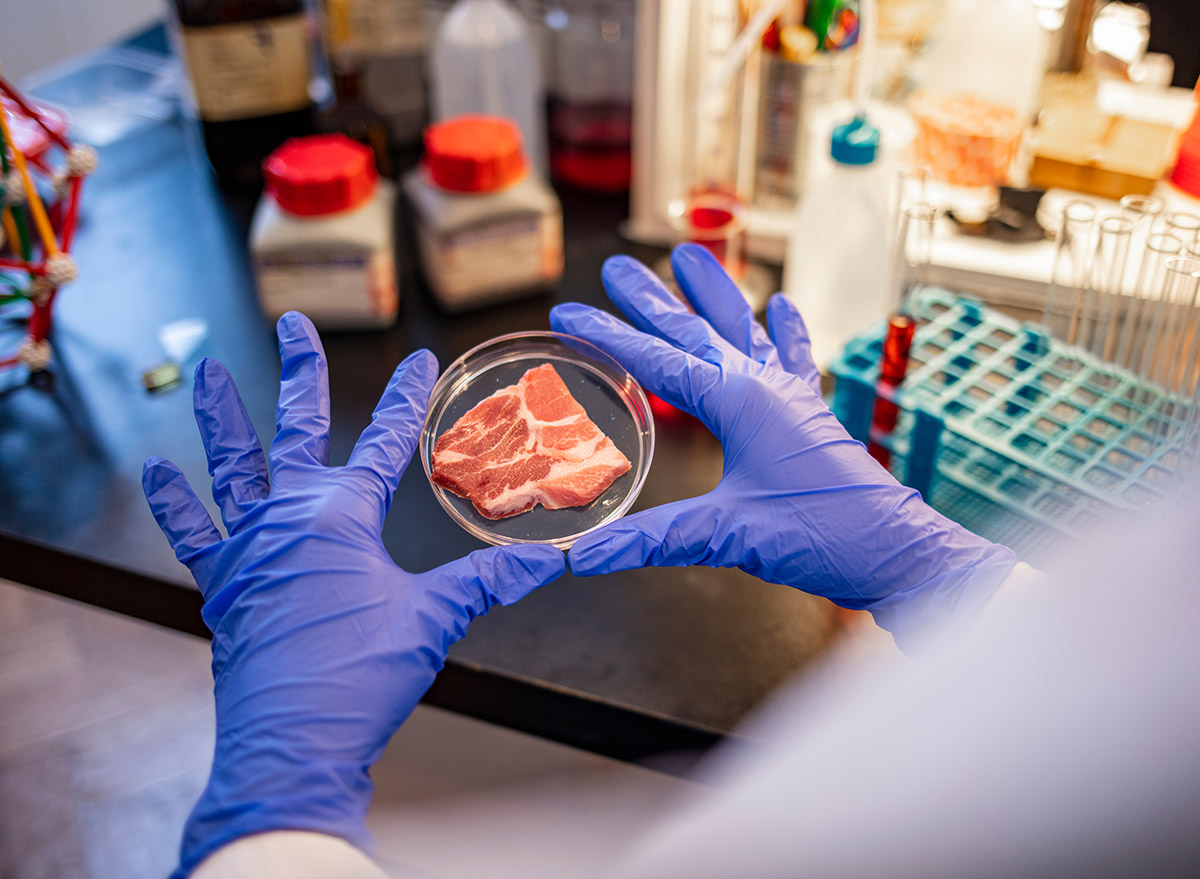
A study from Ireland and Singapore testing the survival rate of coronavirus on several types of meat, including pork, found that the virus had survived for up to three weeks after contamination on both refrigerated (4°C) and frozen (–20°C and –80°C) samples. The researchers stated that while the risk of transmission to humans in such cases is minimal, the potential for an outbreak still exists.








